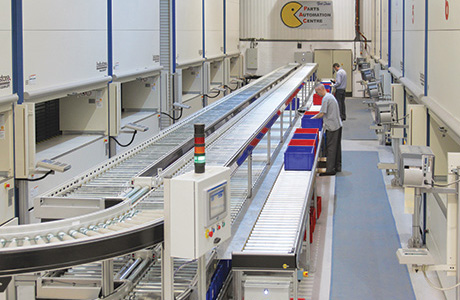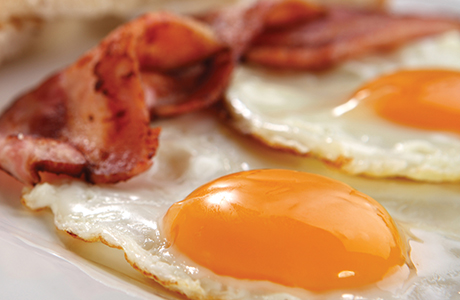
Regular regime is of paramount importance, say chefs and cleaning firms
SERIOUS illness, pest infestations, fire hazards – these are just some of the risks of failing to maintain a high standard of cleanliness in a commercial kitchen.
With such serious consequences, not to mention the prospect of closure or legal action, it’s no wonder chefs, cleaning companies and cleaning product suppliers say having a regular cleaning regime in place is absolutely crucial.
Paul Wedgwood, owner and head chef at Wedgwood the Restaurant in Edinburgh, said kitchen cleanliness is of “paramount importance”.
“It should be viewed the same as choosing the best ingredients – if you start with a bad product it will end up as a bad product, so before you begin food service your kitchen should be spotlessly clean,” he said.
The importance of maintaining a high standard of cleanliness in the kitchen was underlined by Paul Dow, head chef at The Magnum Bar & Restaurant on the capital’s Albany Street, who said the benefits of doing so go beyond basic compliance.
“A clean kitchen is essential for a whole variety of reasons,” he said.
“Obviously to ensure that we are maintaining Food Standards Agency guidelines, but also because clean kitchens tend to make for a better working environment as it sets the standard for everything else that happens within it.
“It’s also easier to run a kitchen where ‘everything has its place’ as people know where to find and put things and ordering is definitely easier.”
To ensure standards are met and maintained, a clear schedule should be in place and reviewed regularly, according to Gerry Sharkey of Glasgow’s La Bonne Auberge.
“Any good kitchen will have a detailed cleaning schedule that identifies what needs cleaned, how often, using what and by whom,” said Sharkey.
“This will be followed up by continual monitoring.”
Jason Gallagher, head chef at The Stockbridge Restaurant in Edinburgh, stressed the importance of maintaining cleaning charts and rotas.
“The entire kitchen team must have responsibility for keeping a clean, safe environment,” he said.
“Daily cleaning should be all worktops scrubbed down, fridge doors, floor, sinks and all utensils and boards (throughout the day), cooker top and grills.
“Weekly cleaning should be the shelves, fridges and a deeper clean of the surfaces.
“Monthly cleaning should involve the filters being changed and a steam clean of all the surfaces.”
And while chefs are fully aware of the serious risks involved if commercial kitchens are not kept properly clean, the highest standards can only be met and maintained if all staff play their part.

Wedgwood said a team effort is essential when it comes to cleaning a commercial kitchen.
“Everyone is responsible for the cleaning of their own area in the kitchen, and this is done through having a clear and detailed kitchen rota,” he said. “Ultimately the kitchen manager has the responsibility for making sure the rota is being adhered to and that each member of the team is doing their part.”
A team effort was also advocated by Alasdair Ritchie, head chef at Melville Castle near Dalkeith.
“A clean-looking kitchen is not necessarily clean; it’s like a pie – you have to look below the crust,” he said.
“Everything should be cleaned at some point, from the ceilings down to the floor and everything in between; everyone should be responsible and accountable for these tasks.”
And while everyone has a part to play, having the correct cleaning materials and equipment is just as important, according to the firm behind cleaning, sanitation and hygiene solutions brand Diversey Care, which is stocked by Alliance Online.
“The best results can only be achieved if staff understand the need for hygiene, know the right processes to employ and are equipped with suitable products, tools and equipment to do their jobs properly, effectively and efficiently,” said a spokesman for the company. “A well-practised cleaning regime with clearly-defined roles, responsibilities and processes is central to this objective.
“Despite the importance of food safety, cleaning and hygiene tasks do not need to be onerous or complicated. Simple processes applied correctly and effective products used properly should be all that are needed to ensure superior results.”
There are, however, some elements of kitchen cleaning for which specialist cleaners are required.
24/7 Elite Clean, which provides kitchen extract system cleaning and kitchen deep cleans, said environmental health and building insurance demand a high level of cleanliness in a kitchen and its extract system.
“Operators should not clean the kitchen extract system themselves,” said company director Frank Rooney.
“Kitchen extract systems should be cleaned as detailed in the schedule contained in Section 7 of TR/19. This can range from one clean per year up to four cleans per year. The frequency depends on how many hours of cooking takes place each day and the type of food being cooked.
“This should be the responsibility of a reputable company that will issue a certificate upon clean completion.
“If kitchen extract systems are not cleaned in line with the schedule set out in TR/19, the risk of fire greatly increases due to a build up of oil and grease in the system.
“Due to high temperatures, this can ignite then travel through the system and into the kitchen.
“The building insurers can invalidate insurance if a schedule is not adhered to and in many cases, buildings have been written off with no claim and no pay out.”























